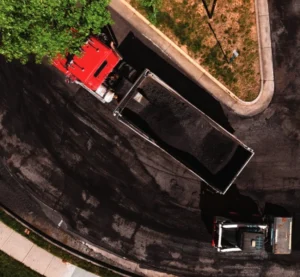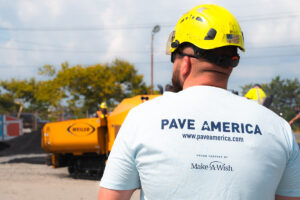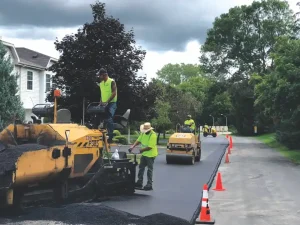Court flooring is a perfect addition to your backyard, serving as an ideal surface for playing or practicing a variety of games such as basketball, tennis, or other outdoor sports and activities. The court’s surface needs to be ideally hard-wearing for any outdoor usage, but also safe and forgiving. So, what surface material can help you achieve your dream outdoor athletic court?
In this article, we explore a variety of options and their pros and cons to help you make that decision.
Common Types of Outdoor Court Surfaces
1. Asphalt Surfacing
Asphalt is the most common surfacing material for athletic courts and outdoor community centers. This surfacing comprises a mixture of fine sand and tar. It is poured and leveled on a stone subfloor and can be customized in terms of color and lining once dry. An asphalt court surface offers a hard surface for high ball bounce, making it a perfect solution for sports such as tennis and basketball. However, it is unforgiving with falls.
Pros
- Cost-effective in terms of installation and maintenance
- An eco-friendly option since asphalt is made up of recyclable materials
- Offers a hard surface that can withstand any kind of outdoor sport or activity.
Cons
- Susceptible to cracking and chipping
- Not safe for falls and can damage ankles and knee joints
2. Hardwood Surfacing
Wood flooring is another common option for outdoor athletic courts. It is an excellent solution if you’re going for an aesthetically appealing court that can withstand heavy use without deteriorating. It consists of fine fibers of wood that can resist splintering.
Pros
- The surface has anti-skid properties, making it safe
- It is quite durable
- Offers a high playability quotient for sports involving balls
- Woods have natural shock-absorbing properties, making them forgiving for falls
- The smooth surface where dirt or grime can hide
Cons
- High cost of installation
- It cannot withstand extreme weather conditions, making it a less preferable solution for an outdoor athletic court.
3. Plastic Surfacing
A multipurpose hard plastic surfacing is not as common as the above options but it’s a great material for outdoor athletic courts nonetheless. It’s an inexpensive, durable, and safe court flooring solution that can serve a variety of outdoor activities.
Pros
- Impact resistant and shock absorbing properties, increasing player safety
- Low cost of installation and maintenance
- Durable and elastic with superior grip for players
- Holds color for long without fading
Cons
- Vulnerable to extreme weather conditions such as hot summers and cold winters
- It May require resurfacing after a certain period of time
4. Rubber Surfacing
Rubber surfacing courts consist of granules of EPDM rubber combined with polyurethane (PU). It serves as the gold standard for outdoor court surfacing, offering a high bounce for excellent performance and safety. Surfaces made of rubber can be customized to the desired bounce by altering the shock pads underneath the top surface.
Pros
- Can withstand extreme weather conditions
- Andi-skid properties for player safety
- Excellent sports experience from the ball-responsive surface
- Enhances playability quotient
- Reduces impacts of severe falls
- Durability
Cons
- Extremely costly to install
- The upper surface appears dull with time for an outdoor court
What to Look for in an Outdoor Court and How Pro-Pave Can Help
An ideal outdoor athletic court surface should be able to tolerate harsh conditions such as ice, snow, or heat and be hard enough for any outdoor activity. It should be built on a foundation with high integrity but also perforated to prevent the accumulation of water on the playing surface. At the same time, you want a surfacing option that falls within your budget and it’s easy to clean and maintain in the long run.
Still undecided on the best surfacing option for your dream outdoor athletic court? Contact us or call (703) 433-9500 for free advice.



